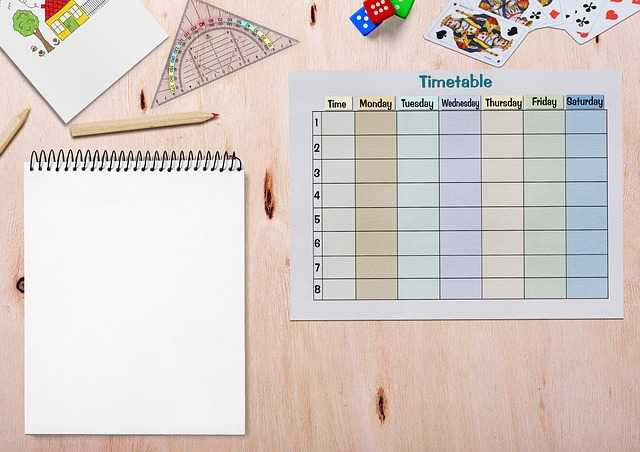Advantages Of Attending Time Management Course

Time Management is the art of organizing and using time to maximize productivity. It helps individuals, teams, and organizations achieve their long-term goals. Organizations are looking for people who can manage their time to be more productive and efficient and to be able to meet their deadlines.
Both personal and professional time management skills are valuable. This time management training course is designed to help you plan activities, identify goals and prioritize tasks, schedule tasks, prepare for meetings, use technology for managing your schedules, and more to get tasks done smarter.
In this article, I will list out Top 12 Time Management Suggestions to Get You Going.
- Establish clear goals
- Make a routine
- Avoid distractions
- Allow for some buffer time between tasks
- Your sleep is important
- Get healthy
- Get feedback
- Do away with clutter
- Do not worry about failure
- Prioritize
- Delegate
- Identify your boundaries and when to say no.

What are the 4 Ds in Time Management?
The 4Ds of Time Management commonly referred to as the 4Ds of Productivity, is a well-liked method for assessing the value of a task or project. This involves making quick decisions about what you should do now, whether you are doing it yourself or delegating it to someone else. It also includes deciding what to do in the future or what to remove from your to-do lists.
The four Ds are
- Do,
- Defer,
- Delegate, and
- Drop.
This enables you to better manage your time and maintain your attention on what matters most.
Why are the 4 Ds Important for Product Managers?
Product managers (PMs), who are notoriously overwhelmed, have millions of requests and demands that compete for their time and attention every day.
PMs need to be able to prioritize tasks and keep people and projects moving in the right direction. Highly successful PMs are masters at time management.
Time management refers to the art of managing your time and directing your time toward specific tasks. This is a strategy that allows you to plan out your time more effectively.
Some people are more adept at time management than others. Everyone, however, may learn how to sharpen their time management abilities.
Your career and well-being may suffer if you lack effective time management techniques and this could include the followings.
- Poor quality work
- Missing deadlines
- Stress levels can be increased
- Your work-life balance is at risk
- Your professional reputation

Poor Time Management: Implications
We must also take into consideration the negative consequences of poor time management.
1. Poor Workflow
The inability to plan and adhere to goals can lead to poor efficiency. If there are many important tasks to be completed, an efficient plan would be to complete them all together or sequentially.
If you don't plan you might find yourself having to jump around or go backward in your work. This can lead to lower efficiency and less productivity.
2. Wasted Time
Bad time management can lead to wasted time. Distracting yourself from the task at hand by talking on social media to your friends while you're working on an assignment is a distraction and a waste of time.
3. Control Loss
You lose control over your life if you don't know what the next task will be. This can lead to anxiety and stress levels that are higher.
4. Low-Quality Work
Poor time management can lead to poor quality work. Quality is often compromised by having to rush to finish tasks last-minute.
5. Bad Reputation
Clients and employers will not be able to rely on your ability to complete tasks on time. This can negatively impact their expectations of you. Clients who cannot trust you to complete tasks on time will most likely move on to other businesses.

Time Management: The Benefits
You can reap many benefits by learning how to effectively manage your time. These benefits include:
- Increased productivity and efficiency
- Less stress.
- Better professional reputation
- Higher chances of advancement
- You have more opportunities to reach your career and life goals.
Making wise choices about how you spend your time is easier for you now that you feel more in control of the situation. You'll feel happier, more relaxed, and more able to think. This will make you a great person to help other people reach their goals.
Time management Techniques
1. Be structured: Time block your work
A structured schedule is crucial for actually delivering what you set yourself. It helps you protect space for your work and sets a healthy pressure to actually complete it. Time blocking is one of the most productive ways of doing this, as it prevents one task from overtaking your entire day and stops you from multi-tasking.
2. Be self-aware: Track your time
Ultimately, you can’t improve how you use your time, without understanding how you actually use it in the first place. Tracking your time is elementary here—it provides the insight and self-awareness to make effective changes, surfacing hidden time drains, highlighting inefficient processes and laying out your productive patterns.
3. Be prioritized: Rank your tasks
If writing a to-do list is the first step towards better time management, prioritizing your tasks is the next. It guides you through the day’s activities in order of importance, ensuring that the tasks that matter most are dealt with first.
Please share your ideas in the comment box below if this well-researched post has helped you learn something new.
Author Bio
The author is currently blog-walking, reading, researching, and writing about the most pressing global concerns. She is also quite interested in reviewing a variety of tips and tricks in a variety of industries.
The author's main aim is that the entire post will be extremely useful and valuable to the readers, as well as providing a solution to some key consumer issues.
Article Comments
No Comments!
At present there are zero comments on this article.
Why not be the first to make a comment?
Similar Articles
Sponsor
Search Articles
Experts Column
Latest Articles
Featured Articles
Most Popular Articles












